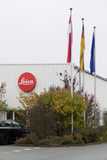Soft Power: Germany / Germany
Ethics work
Germany’s economic status exceeds its place in the world power order. With a touching lack of marketing sophistication and sturdy business values, Europe’s powerhouse has achieved soft power almost by accident.
Soft power has become a rallying cry for nations more touchy feely than Germany, but the Teutonic economic might and influence is built on actions rather than words. While the eminently exportable Brand Denmark has a dedicated public diplomacy department to ensure the nation stays squeaky green and clean around the globe, and Brazil’s laid-back dolce vita charms are kept in shape by a steely diplomatic focus on looking good, Germany keeps on doing what it does best – cranking out an unparalleled range of high-quality exports that speak for themselves.
Germany isn’t just the biggest economy in Europe; it’s also the world’s second-biggest exporter (after China), flooding foreign markets without political crowing from Berlin. While countries from Canada to Australia invest in telling consumers about the benefits of their products, Germany delivers, and the country’s products still succeed abroad where the marketing programmes of other countries fail. Germany’s gross domestic product rose 3.6 per cent last year, and is expected to expand a further 2 per cent in 2012, against the backdrop of other western economies teetering on the edge of another recession.
Being a place where things are made rather than designed, there’s undeniable solidity in having a reputation for engineering, putting function above all else. Consumers the world over pay a premium for German products because they know they’ll work and last. Manufacturers in South America, Eastern Europe and Asia try to mimic the country’s manufacturing success, but it’s no secret that when corners are cut, quality and precision suffer.
While Germany’s reputation helps it sell products, internally the country has a unique business community that underpins its image. The country is home to a broad range of mid-sized, mostly family-owned companies known as the Mittelstand. Officially, the businesses either employ fewer than 500 people or have annual sales of less than €50m, according to the Association of German Chambers of Industry and Commerce in Berlin. But unofficially the moniker covers almost any family-run corporation with a lengthy history. The Mittelstand accounts for just over 50 per cent of Germany’s nearly $3trn in GDP and employs nearly 80 per cent of its 40.5 million workers.
The 3.5 million Mittelstand companies are easy to spot since they often bear the names of their owners. These include industrial parts manufacturer Schaeffler, led by matriarch Maria-Elisabeth Schaeffler and her son Georg, and mining giant Herrenknecht, run by CEO Martin Herrenknecht. And then there’s a toy company known officially as geobra Brandstätter that you may have come across under another guise, after owner Horst Brandstätter approved the rolling out of small figures called Playmobil in the 1970s, a plastic army that has since taken over playrooms around the globe.
Everyone knows Mercedes-Benz and BMW, but the Mittelstand is a unique component of the German economy, and the big brands rely on the Mittelstand for their consistent quality. “The Mittelstand is the backbone of the German economy,” says Volker Treier, chief economist at the German Chamber of Commerce and Industry (DIHK). Based in Berlin’s swanky Charlottenburg neighbourhood, the DIHK’s Treier credits the Mittelstand with helping pull Germany out of the 2007 recession, in large part by embracing government subsidies for offering employees fewer hours in place of layoffs. The programme appears to have a been a success – the country’s 7 per cent unemployment is at the lowest level since the fall of the Berlin Wall. And all the while, exports continue to keep the economy churning, explaining the eagerness of German politicians to fork out and keep Europe afloat. The country is Europe’s economic engine and even when Berlin isn’t making direct injections to EU bailouts, government-owned banks such as Hypo Real Estate are buying up eurozone bonds to keep nearby countries buoyant.
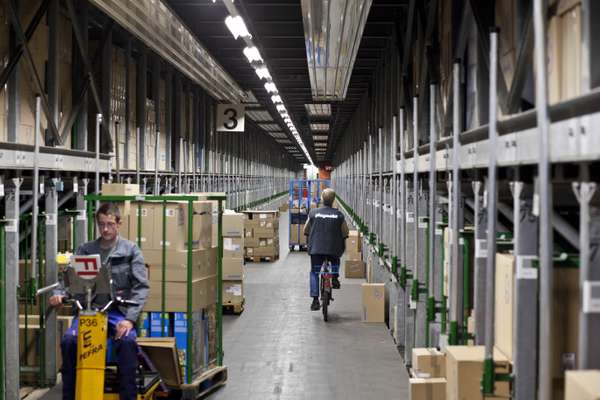
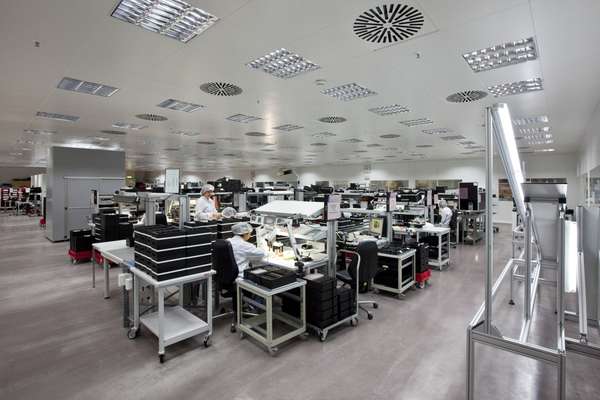
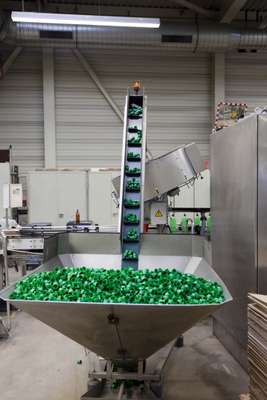
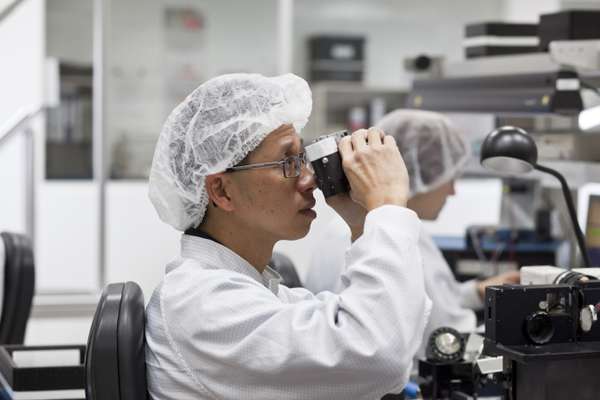



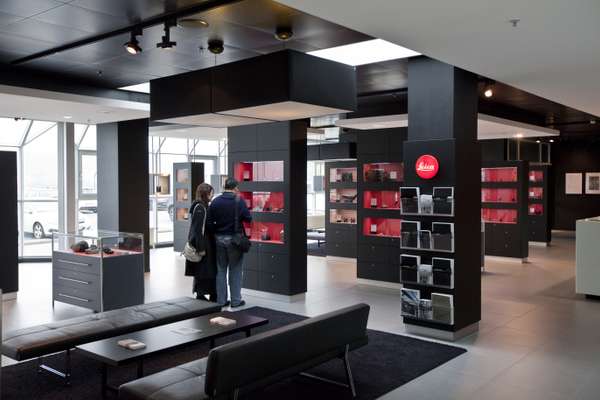
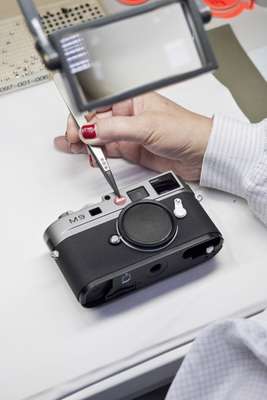
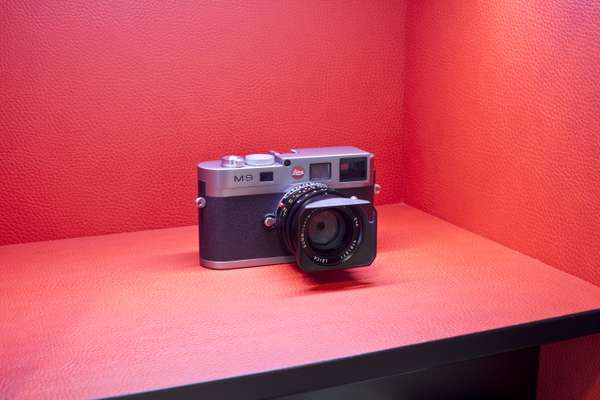

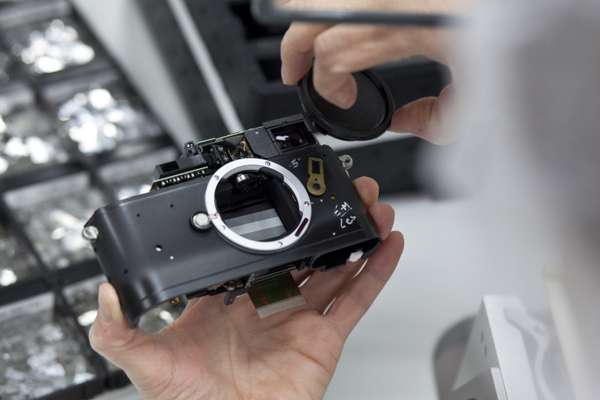
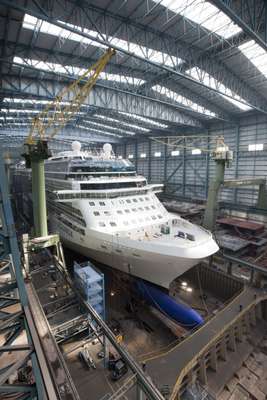
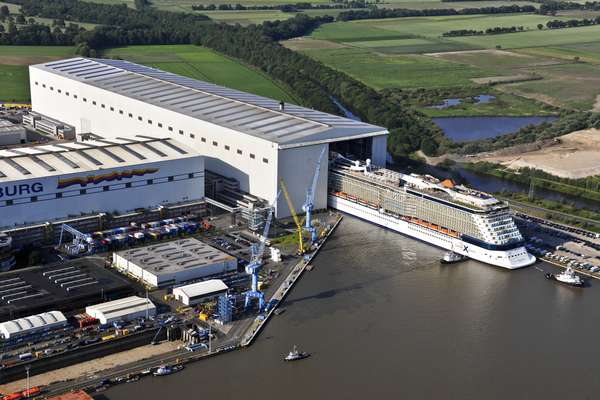
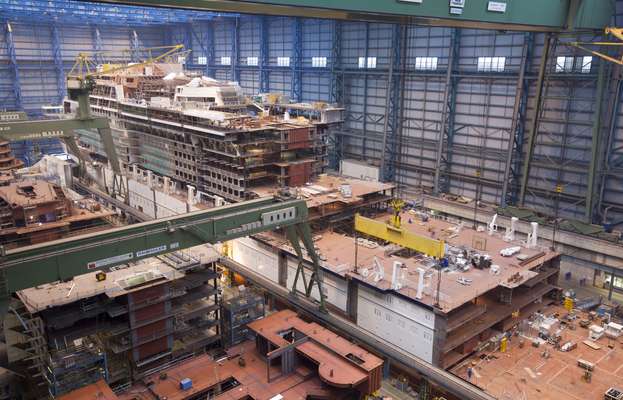
“Right now Germany’s biggest export market is still Europe, but the trend is moving towards China. In 2013, China will become Germany’s biggest export market,” Treier says. The country’s unique location not only puts it just a border or two away from its biggest customers, it also offers proximity to low-wage, flexible labour markets to the east to help keep margins down. There is a parallel to be drawn between German politicians and German products: everyone agrees that they get the job done, but people can still be waspish about their looks and lack of glamour. “German businesses aren’t always innovators in design, but they’re innovators in what’s inside,” says Alexander Biesalski of Munich brand consultancy Biesalski & Company.
Advertising campaigns are often unnecessary for German brands because the Teutonic title says it all, but it’s a branding trick that other businessmen have started to exploit. If imitation is the sincerest form of flattery, then certain unscrupulous Russian businessmen are making Germany blush.
Appliance maker Bork Elektronik, which manufactures in China and sells through Russia’s Technopark electronics chain, has launched a Berlin subsidiary to mask its heritage. Similarly, British detergent and textile-dye maker Dylon International has also devised the Teutonic-sounding Frau Schmidt soap to try and wow Russian consumers as well.
“Some German companies could emphasise their heritage a bit more,” says Andreas Pogoda at Hamburg brand consultants Brandmeyer. “For some Germans it’s still: ‘Don’t mention the war’ but consumers know the difference between historic political ideologies and modern-day business.”
Despite the country’s image as infallible builders, the Mittelstand isn’t without its problems. The continued strength of the euro hampers sales abroad even if it can make raw materials cheaper since most commodities are traded in dollars. German products are already expensive because of the country’s generous social system and tough labour laws. Companies that have more than 200 employees are required to have a works council to oversee the hiring and firing process, and all listed businesses need a supervisory board half comprised of representatives. Employment regulations can sometimes be a double-edged sword for German businesses.
Looking beyond labour, the country’s spatial geography is partially responsible for the Mittelstand’s staying power. Germany is made up of mid-sized cities and most companies are spread evenly throughout the country rather than concentrated in a handful of areas. At 3.5 million residents, the capital Berlin is Germany’s biggest city while Hamburg, Munich and Köln don’t come near two million. “There are a lot of social ties within a Mittelstand company that don’t exist in a major corporation,” says Alfred Schopf, CEO of Leica cameras. “Many entrepreneurs started their company in their hometowns, and if they sell up, it affects their social status.”
Even if German families don’t like to sell their companies, succession is a looming problem for the Mittelstand. Germany’s birth rate has lagged behind its death rate for years with no solution in sight. And of the 22,000 Mittelstand companies that change hands each year, Germany’s Federal Ministry of Economics and Technology says about half lack a family successor. Globalisation is also luring young heirs abroad to study, breaking bonds to both their hometowns and their family companies.
Still, the Mittelstand is far from flagging, and is still Germany’s great hope for lasting influence around the globe. While other countries peacock their qualities, Germany has quietly grown into the world’s second-biggest exporter thanks to an emphasis on family businesses and consistency – qualities that foreign rivals seem to have lost touch with. The country has emerged as a master of soft power almost by accident, driven by its economic reputation (it is the world’s the fourth-largest economy). German companies aren’t just exporting products, they’re exporting a small slice of Teutonic work ethic with every camera, bar of soap and boat that is Made in Germany.
Best shot
The resolutely unflashy and compact Leica camera says one thing – I’m not sexy, but I take beautiful photos. Born in the early 20th century when cameras were cumbersome, inventor Oskar Barnack focused on fitting the best possible lens into the smallest possible casing. And Leica has never strayed from that mandate, becoming somewhat of a poster child for German products that put function and quality over form. “We’re consciously brand ambassadors for ‘Made in Germany,’” says Leica management board CEO Alfred Schopf.
Child’s play
Teaching German values from an early age, the Playmobil world is neat, safe, clean and regimented. With scares over toxins in toys manufactured in developing markets, parents don’t mind paying a little extra for peace of mind. Although the company has moved some production abroad, most are still produced at home – and all follow German safety standards. “People buy Playmobil because it’s a neat system, which is something very German – this idea that everything has its place,” says Andrea Schauer, CEO of Playmobil parent geobra Brandstätter.
German values clean up
Germany’s squeaky-clean image has fuelled foreign expansion for the household cleaner company Werner & Mertz. Its signature line of Frosch goods – that’s frog in German – became a popular gift in Japan, where the humble frog is seen as good luck. The brand was first launched in 1986 to clean up on a sustainability trend that germinated the country’s now-powerful Green party, and then took off in Japan where consumers regard Germans as tidy. After a decade as a high-priced gift, Frosch products can now be found on almost every supermarket shelf, following a deal with a local distributor. East Asian appreciation of German values has aided expansion, but markets outside of Europe and Japan are tougher nuts to crack. “Exporting can only work in markets like Japan where our reputation commands a higher price,” says Peter Kloppe, marketing director at Werner & Mertz.
Shipbuilding giant steams ahead
Founded in 1795, Meyer Werft covers the whole nautical spectrum of shipbuilding. Although primarily known for the cruise ships that have made its name and which the shipbuilding giant approaches as “floating hotels”, the company also makes riverboats, livestock ferries and container ships, all on a scale and complexity that befits a German engineering legend.
The scale of the projects means that the company only releases a handful a year, but even that produces around €1bn in sales. As if building behemoth boats isn’t enough, delivering them requires yet another feat of German engineering. The government spent nearly €224m around the turn of the century to build a complicated dam system to ostensibly protect the region around the Ems river from flooding, but also to enable temporary flooding specifically for the delivery of Meyer Werft ships – its shipyards are docked 36 kilometres inland from the North Sea.

